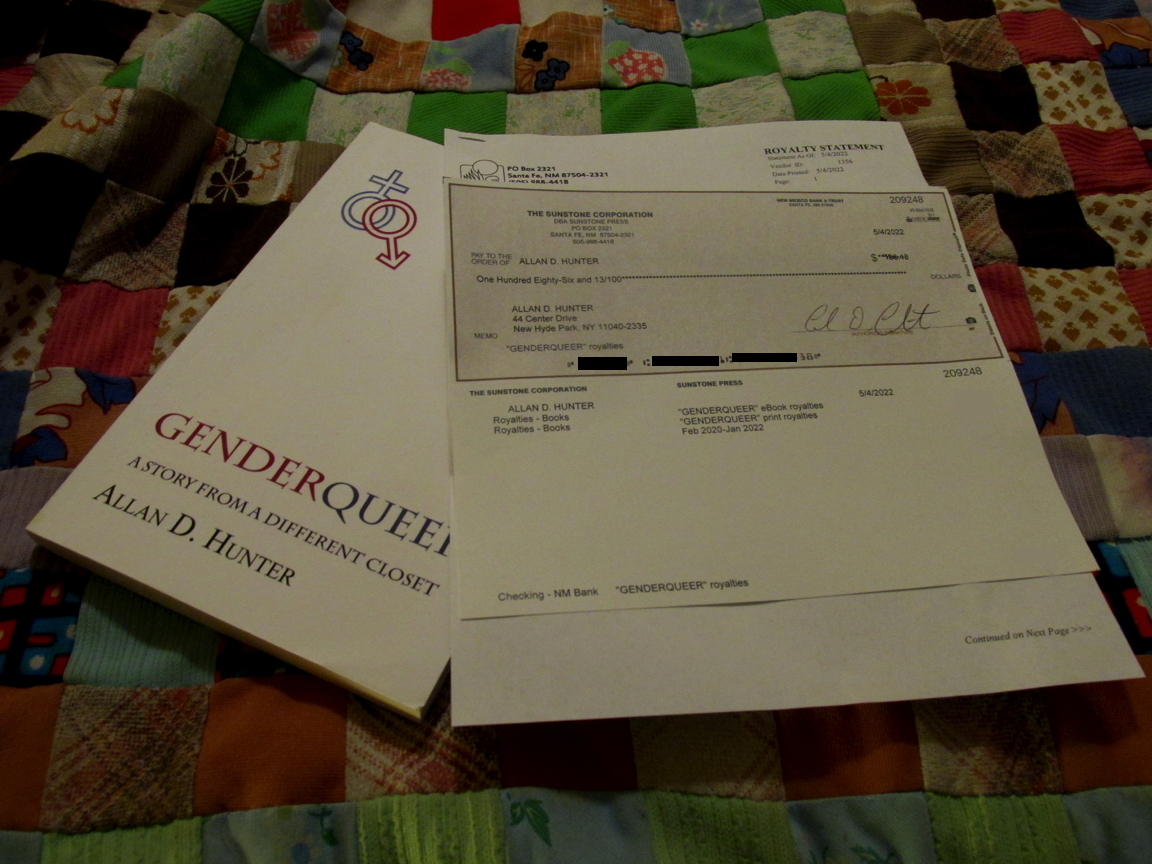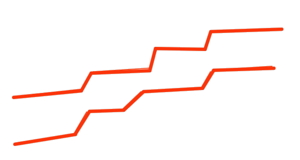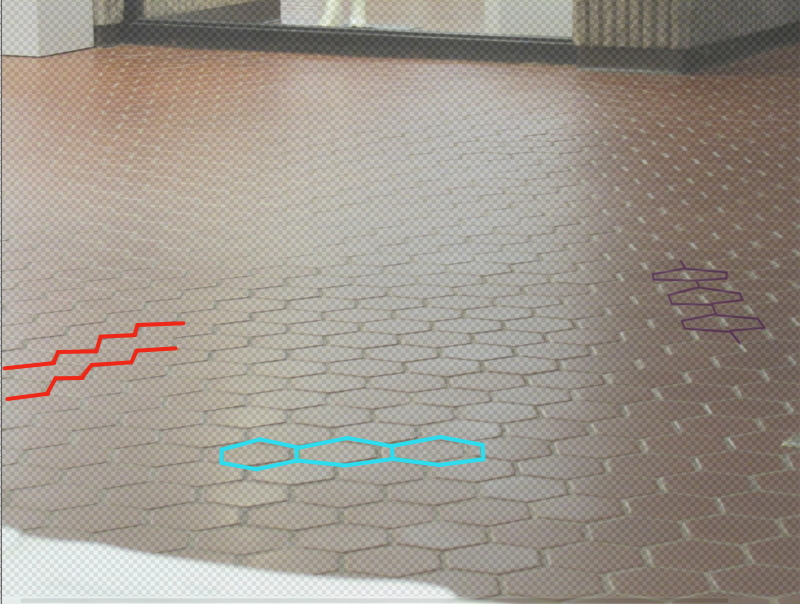Last week, I participated in Berkshire Choral International's rendition of "Considering Matthew Shepard" by Craig Hella Johnson at the National Cathedral in Washington. This was the culminating event after months of at-home practive (memorizing my part in five momements and becoming familiar with the remaining ones) and a very intense week of rehearsal with the other 150-someodd vocalists.
As you might expect, this piece drew an abundance of LGBTQ singers. (Not that there don't tend to be a significant number at any given BCI event, but not to this extent).
Because of the current political climate, and because transgender people in particular are being targeted for political victimization, I for once put my self-immersion on hold and made a real attempt to blend, both as a vocalist and as part of the LGBTQIA+ rainbow, instead of putting a lot of effort into representing my specific identity as a genderqueer male femme. And although I didn't feel perceived and recognized for exactly who I am within that coalition rainbow, I felt embraced welcomed and, for once, part of things, part of the community.
We put on a hell of a good concert. Our conductor, Jeffrey Benson, was exceptional, and polished us as a group to precision detail.
Maybe the sense of affinity and belongingness touched me and started some deep-inside-the-head process, I don't know, but I've been experiencing emotional extremes a lot in the days following Berkshires. I went for one of my 25-mile walk excursions and dredged up a lot of misery and foreboding and feelings of defeat, and chewed on them until they dissolved. Later, I sat on our porch steps and smoked some weed and contemplated for an hour or so, and at the end of that I found something pathetic and vulnerable lurking in the dark corners of my head -- the attitude that it's only okay that I am the way I am if I change the world. That effecting social change, successfully establishing this gender identity I've claimed as my own, makes that identity okay.
That is a bit short of real self-acceptance, if you see what I mean. It has to be okay to be who I am and not change the world.
Not that I don't intend to continue to try, mind you. What that unhealthy attitude really indicates is that I'm not as insulated from caring about what other people think of me as I tend to believe I am. I think I'm pretty immune from being hurt or troubled by what this acquaintance or that stranger thinks of me, but in the aggregate I still want to explain myself to the rest of my society and get a nod of understanding and acceptance. OK, I don't think that's necessarily an unhealthy desire. But when it leads to thinking badly of myself, thinking I'm not trying hard enough, or making harshly critical assessments of my skills for engaging with people, that's essentially kicking myself over and over for not being a successful activist. It's basically punishing myself for being who I am without changing the world.
—————
My first book, GenderQueer: A Story From a Different Closet, is published by Sunstone Press. It is available on Amazon and Barnes & Noble in paperback, hardback, and ebook, and as ebook only from Apple, Kobo, and directly from Sunstone Press themselves.
My second book, That Guy in Our Women's Studies Class, has also now been published by Sunstone Press. It's a sequel to GenderQueer. It is available on Amazon and on Barnes & Noble in paperback and ebook, and as ebook only from Apple, Kobo, and directly from Sunstone Press themselves.
I have started querying my third book, Within the Box, and I'm still seeking advance readers for reviews and feedback. It is set in a psychiatric/rehab facility and is focused on self-determination and identity. Chronologically, it fits between the events in GenderQueer and those described in Guy in Women's Studies; unlike the other two, it is narrowly focused on events in a one-month timeframe and is more of a suspense thriller, although like the other two is also a nonfiction memoir. Contact me if you're interested.
Links to published reviews and comments are listed on my Home Page, for both published books.
———————
This DreamWidth blog is echoed on LiveJournal and WordPress. Please friend/link me from any of those environments on which you have an account.
————————
Index of all Blog Posts
As you might expect, this piece drew an abundance of LGBTQ singers. (Not that there don't tend to be a significant number at any given BCI event, but not to this extent).
Because of the current political climate, and because transgender people in particular are being targeted for political victimization, I for once put my self-immersion on hold and made a real attempt to blend, both as a vocalist and as part of the LGBTQIA+ rainbow, instead of putting a lot of effort into representing my specific identity as a genderqueer male femme. And although I didn't feel perceived and recognized for exactly who I am within that coalition rainbow, I felt embraced welcomed and, for once, part of things, part of the community.
We put on a hell of a good concert. Our conductor, Jeffrey Benson, was exceptional, and polished us as a group to precision detail.
Maybe the sense of affinity and belongingness touched me and started some deep-inside-the-head process, I don't know, but I've been experiencing emotional extremes a lot in the days following Berkshires. I went for one of my 25-mile walk excursions and dredged up a lot of misery and foreboding and feelings of defeat, and chewed on them until they dissolved. Later, I sat on our porch steps and smoked some weed and contemplated for an hour or so, and at the end of that I found something pathetic and vulnerable lurking in the dark corners of my head -- the attitude that it's only okay that I am the way I am if I change the world. That effecting social change, successfully establishing this gender identity I've claimed as my own, makes that identity okay.
That is a bit short of real self-acceptance, if you see what I mean. It has to be okay to be who I am and not change the world.
Not that I don't intend to continue to try, mind you. What that unhealthy attitude really indicates is that I'm not as insulated from caring about what other people think of me as I tend to believe I am. I think I'm pretty immune from being hurt or troubled by what this acquaintance or that stranger thinks of me, but in the aggregate I still want to explain myself to the rest of my society and get a nod of understanding and acceptance. OK, I don't think that's necessarily an unhealthy desire. But when it leads to thinking badly of myself, thinking I'm not trying hard enough, or making harshly critical assessments of my skills for engaging with people, that's essentially kicking myself over and over for not being a successful activist. It's basically punishing myself for being who I am without changing the world.
—————
My first book, GenderQueer: A Story From a Different Closet, is published by Sunstone Press. It is available on Amazon and Barnes & Noble in paperback, hardback, and ebook, and as ebook only from Apple, Kobo, and directly from Sunstone Press themselves.
My second book, That Guy in Our Women's Studies Class, has also now been published by Sunstone Press. It's a sequel to GenderQueer. It is available on Amazon and on Barnes & Noble in paperback and ebook, and as ebook only from Apple, Kobo, and directly from Sunstone Press themselves.
I have started querying my third book, Within the Box, and I'm still seeking advance readers for reviews and feedback. It is set in a psychiatric/rehab facility and is focused on self-determination and identity. Chronologically, it fits between the events in GenderQueer and those described in Guy in Women's Studies; unlike the other two, it is narrowly focused on events in a one-month timeframe and is more of a suspense thriller, although like the other two is also a nonfiction memoir. Contact me if you're interested.
Links to published reviews and comments are listed on my Home Page, for both published books.
———————
This DreamWidth blog is echoed on LiveJournal and WordPress. Please friend/link me from any of those environments on which you have an account.
————————
Index of all Blog Posts




